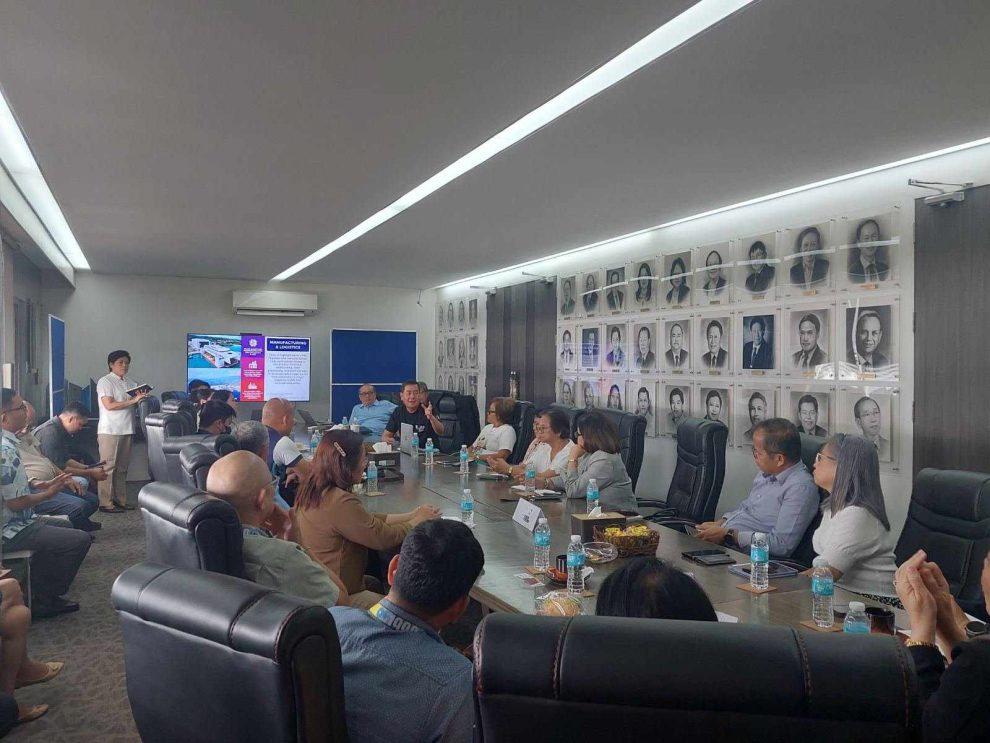Amid growing global uncertainty—including shifting tariff policies of the United States—the Cebu Chamber of Commerce and Industry (CCCI) is calling for stronger collaboration between the private sector and educational institutions to future-proof Cebu’s workforce and strengthen its global competitiveness. For CCCI President Jay Yuvallos, the foundation of a resilient economy lies in developing world-class people.
“We are going to be affected (by so-called tariff wars), even if our tariffs are a little lesser than those of other countries,” Yuvallos said in a recent interview. “In a global economic war, there are no real winners. If demand drops, everyone gets hit. What we can control is how prepared we are—and that means focusing on our people.”

In line with this, the Cebu Chamber recently hosted the 2nd stakeholders meeting of the academe-industry alliance to address the perennial skills gap and industry requirements. The mismatch between the skills that employers need and the skills that job seekers i.e. graduates or employees possess.
Yuvallos underscored the need to establish an Industry-Academe Alliance—a strategic partnership dedicated to long-term workforce planning, skills alignment, and talent development.
During the meeting, both the industry and the academe committed to working closely on a roadmap that would include revamping education models and curriculum design and alignment, internships, upskilling, reskilling as well as knowledge exchange such as partnerships between employers and educational institutions to ensure that educational programs are relevant to industry needs and that graduates are well-prepared for the workforce.

Yuvallos emphasized that Cebu’s global competitiveness will be defined not by ambition alone, but by the quality of its people. “When we speak of global competitiveness, it’s very clear to us: we need world-class enterprises, a world-class business community, and world-class people,” he said. “Anything less—goodbye.”
The Chamber’s strategy reflects this people-first focus. Yuvallos revealed that for 2025, the Chamber is targeting 10,000 people-to-people engagement—through forums, speaking engagements, mentoring, and public-private dialogues. “It’s a simple but important metric,” he explained. “If people don’t participate, they won’t understand the Chamber’s agenda—and if they don’t understand, we can’t move forward together.”
He described the proposed Industry-Academe Alliance as a “powerful force” in future-proofing Cebu’s economy. “The impact educators have on students is transformative. The energy of the academe, when connected to industry realities, becomes a shortcut to building a competitive workforce.
“The formation of an Industry-Academe Alliance isn’t just timely—it’s necessary,” Yuvallos stressed. “If Cebu wants to compete globally, we need strong collaboration, a shared agenda, and above all, world-class people.”
“We are going to be affected, even if our targets are smaller than other countries,” Yuvallos said in a recent interview. “In a global economic war, there are no real winners. If demand drops, everyone gets hit. The only thing we can control is how prepared we are—and for the Chamber, that means focusing on the capabilities of our people.”

During the meeting, both sectors recognized that A skilled and productive workforce is crucial for economic growth as it drives innovation, increases productivity, and attracts investment, ultimately contributing to a stronger economy and a more equitable society. A well-trained workforce can lead to lower unemployment, reduce reliance on social programs, and foster social mobility.
Yuvallos emphasized that global competitiveness is not just a buzzword but a call to action. “When we speak of global competitiveness, it’s very clear to us: we need world-class enterprises, a world-class business community, and world-class people,” he said. “Anything less—means goodbye.”
He was quick to clarify that the vision is simple in statement but complex in execution. “It is not just about attracting investments. It is about the mindset, skills, and adaptability of our people.”
The Chamber’s recent engagement with the academe marks a significant shift toward what Yuvallos described as “future-proofing” Cebu. “The impact educators have on students is transformative. The energy in the academe is infectious. If we can align it with real industry needs, that is the shortcut to building a more competitive economy.”
With Central Visayas’ economy now valued at ₱1.36 trillion, Cebu stands at a pivotal moment. “We have the numbers. But economic size is not enough—we need to strengthen our people. It is part of our mission.” Yuvallos stressed.

As Cebu positions itself as a regional leader in trade, tourism, and innovation, the Chamber’s call to action is clear: invest in people, align education with opportunity, and build a future-ready workforce through strategic partnerships.
“Ultimately, if Cebu wants to win globally,” Yuvallos said, “we need to develop world-class people. That is our bottom line—and that is where the future begins.












